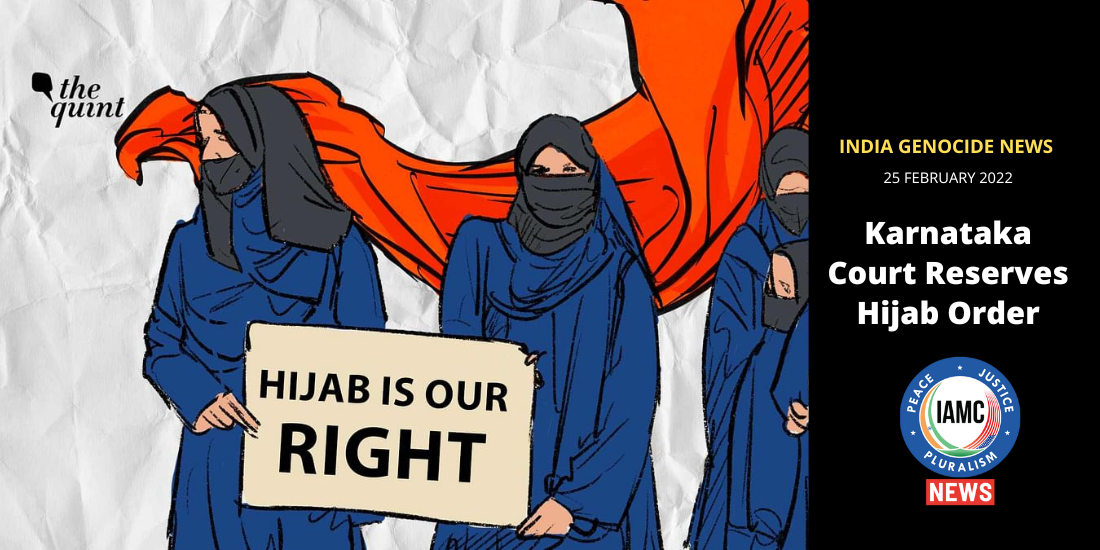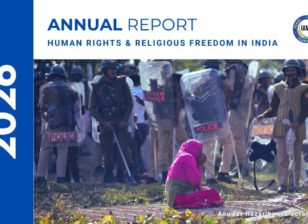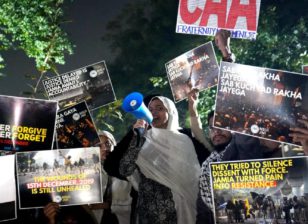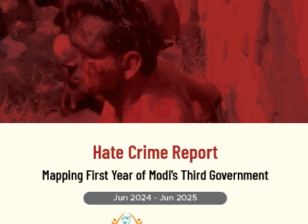Karnataka High Court Reserves Order On Hijab Case; Rejects Plea Seeking Protection For Muslim Girls Hounded By College Authorities, News Media
The Karnataka High Court concluded hearings but reserved its order on several petitions filed by Muslim girls from government-run pre-university colleges in Udupi district of the state challenging a ban on the wearing of the hijab in classrooms.
The three-judge panel hearing the case had earlier controversially banned the hijab as an interim order. Although many schools and colleges misinterpreted that order to impose wider bans, the court has refused and failed to clarify that its order was limited only to a section of the educational institutions.
The court also rejected a public lawsuit that wanted relief for hijabi Muslim girls who have been hounded by the news media and some colleges themselves. College officials have forced many tearful students, and even teachers, to remove their hijabs and burqas.
But the court told the petitioner to approach the “appropriate authorities” even though it is well known that such “appropriate authorities” – from colleges officials to the the state government to the police – have all openly displayed their hostility towards the Muslim women.
On February 5, the Karnataka government, which is ruled by the Hindu extremist Bharatiya Janata Party (BJP), issued an order as good as approved the banning of hijab in educational institutions.
Bizarrely, Karnataka government’s top lawyer, the advocate general, told the court it should not accept that wearing the hijab was an essential part of Islam, as that would result in the loss of choice among Muslim women in wearing the attire.
Hijab Row Now Enters Delhi As BJP Councilor Ban Hijab In Schools While Allowing Sikh Turbans
The hijab controversy has moved beyond Karnataka. In New Delhi, a section of schools under the BJP-ruled Municipal Corporation on Thursday ordered a ban on the wearing of the hijab inside the premises. The chairperson of the education committee of South Delhi Municipal Corporation (SDMC) issued an order asking officials not to allow students wearing “religious attire” inside schools. The order comes two days after a Class VI student of a school in Mustafabad in northeast Delhi reportedly alleged that she was asked by her teacher to remove hijab.
Nitika Sharma, a BJP councilor from the national capital’s Dwarka neighborhood, told officials that parents sending children to school in “religious attire” is “not right at all.” Such an action, she added, can build a “mentality of inequality.”
Defending the move, the order by Sharma says, “School uniform is prescribed for children studying in the primary schools running under the SDMC, in which they look very beautiful. From time to time, the corporation keeps changing the colour of the uniform, due to which there is no inferiority complex between the rich and poor children studying in school.”
The order further asks the school officials to ensure that children wear non-uniform clothes only during competitions or festivals. “On normal days, students should be present in school only in the school uniform.”
When asked about Sikh students who wear turban, she said the order exonerates them. “Turbans are needed to tie hair. In every school, Sikhs come in turban and no correlation should be drawn.”
Hindu Extremist VHP Demands Action Against Muslim Organization That Is Providing Legal Help To Muslims Wrongfully Convicted Of Bombings
The Vishwa Hindu Parishad (VHP), a far right Hindu supremacist group that terrorizes Muslims and Christians across India, has demanded action against Jamait Ulama-e-Hind (JuH), a Muslim organization, for standing in support of dozens of Muslims who have been unfairly and wrongfully convicted by a partisan judge in Gujarat state for a string of bomb blasts.
JuH president Arshad Madani had earlier announced support for those convicted in Ahmedabad blasts and had said that his organization would provide legal help to them.
VHP spokesman Vinod Bansal said that the court verdict in Ahmedabad blasts was historic since the court had handed death sentence to 38 people and life term to 11.
The bomb blasts had occurred in Ahmedabad, Gujarat’s biggest city, on July 26,2008 in which 56 persons had lost their lives and 200 were injured.




